Torroba: Luisa Fernanda (López Cobos)
Introduction
A live performance of Moreno Torroba`s famous zarzuela of 1932, filmed over two nights from Madrid`s Teatro Real.
The plot is as follows (paraphrased unashamedly from the booklet which comes with the DVD).
Act 1 takes place during the final moments of the reign of Queen Isabella II. Extremaduran landowner Vidal Hernando and cavalry colonel Javier Moreno woo Luisa Fernanda. The clash between them is not only sentimental: the former is a Liberal, the latter is a Monarchist. Luisa loves Javier, but she has a powerful rival in Duchess Carolina, who is also in love with him.
In Act 2, seeing that Javier prefers the company of the duchess at the festival of San Antonio, Luisa accepts Vidal`s proposal of marriage out of spite. The emnity between the two men is greater than ever.
An uprising has taken place against Isabella II. Javier, knocked off his horse by Vidal, is captured by the Liberal militias and when two revolutionaries try to assult him, Luisa steps in and saves his life. Soon after, the Monarchist troops manage to rescue Javier.
Act 3 takes us to the Extremaduran border with Portugal. The Monarchy has fallen. While awaiting their upcoming wedding, Vidal throws a party for his fiancée. Javier turns up in the middle of the celebrations, kneels in fromt of Luisa and begs for her forgiveness. Although she rejects him and asks him to leave, Vidal realises who his fiancée really loves and annuls their engagement, allowing Luisa to leave with Javier.
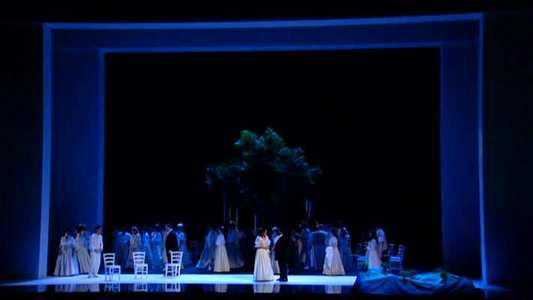
Video
Another NTSC disc with perfect video quality, although again, I cannot comment on the HD filming as I haven`t got a TV to match, unfortunately.
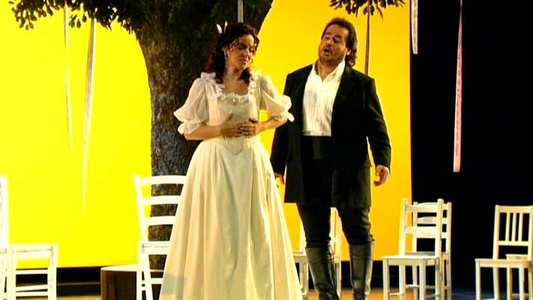
Audio
Sound is also excellent, with a superb DTS track (and the stereo is equally impressive).
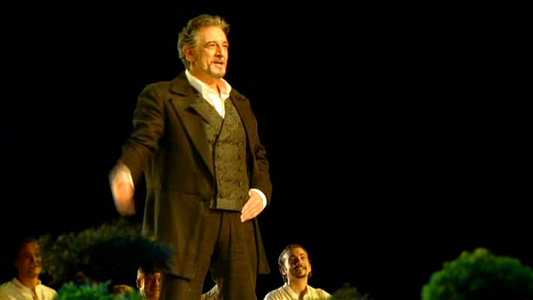
Features
The main extra here is a 25 minute interview with the director, Emilio Sagi, López Cobos, and Domingo. It`s a shame that the other singers don`t get a look-in, but you learn a lot about this particular style of opera, and even more about the passion for, and understanding of, a particularly Spanish (focussed on Madrid) art form, by those who are performing it.
Subtitles are in English,French, german, Italian and Spanish (there was at least one moment where the English translation went a bit awry - what I assumed should have been "The leader of this rabble must be addressed" turned out as "The leader of this rubble must be addressed".
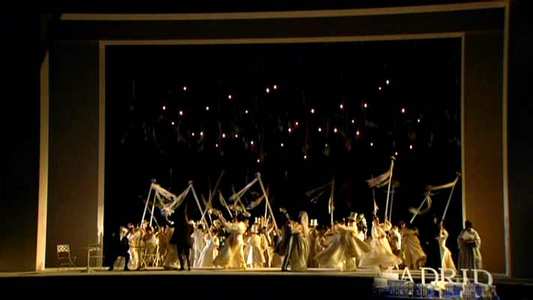
Conclusion
So when is an opera not an opera, but a `zarzuela`? As far as I can tell (and to be honest, this is completely new to me), it is essentially an opera, but without the need for accompanied recitaives, using spoken scenes instead, with a good dose of dances scattered throughout. These, together with a liberal sprinkling of Spanish folk(ish) music, creates a rather interesting and lush offering , in this example at least.
Despite being set in one of the most influential periods of Spanish history the story essentially concentrates on the love triangle bewteen Luisa, Vidal and Javier (described by Domingo in the interviews as a `good for nothing`, or something similar), and so, dramatically, the work appears on face value to be a rather `light` affair, but, Torroba is a very inventive composer, and rather fine orchestrator (something which is apparently unusual for a zarzuela - usually created by someone who could write good tunes, and someone else who could orchestrate them). The style varies from Hollywood musicals (well before that particalar genre took off), through Puccini and Wagner, yet retaining an unmistakingly Spanish element, and in at least least two sections, in my opinion, raises itself to some of the best operatic music ever written (the `Parasol Waltz` and the duo between Luisa and Javier in Act III).
We are also helped by the obvious love and commitment for this piece by the director and performers. It`s not often that you have singers such as Bros (Javier) and Domingo (Vidal) on stage together, both of whom seem to be set on producing the best performance they can.
Throughout, the performances are exemplary, although Raquel Pierotti (Mariana) sounds a little strained perhaps, but López Cobos`s musical direction sweeps things along very nicely indeed (I have no idea how the band picked up the tempo for the opening though, as it bore no relation to the two beats he gave beforehand). Funnily enough, the msot powerful and emotional moment was Luisa`s denunciation of the duchess - all spoken!
I was also very impressed by the stage design, which was fairly stark, with not much colour, but the costumes (the Parasol Waltz setting was reminiscent of the Ascot scene from `My Fair Lady`), movement, and highly effective sunrise/sunset effects made up for things.
This was a piece I had only previously read about in text books, written by a composer whose music had only got to me via his solo guitar works, but it was quite a revelation! Admittedly, in any other hands, it could have been a fairly interesting experiment, quickly forgotten, but this production, with its commitment and obvious love for the music, has created a very attractive and memorable DVD.
With Domingo and Bros at their best, it would be a great shame if this was not a popular release.
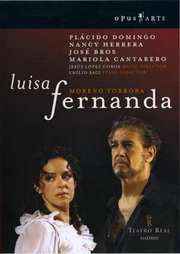
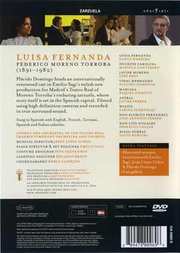




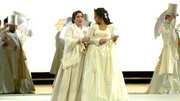
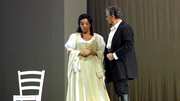
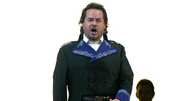
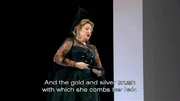
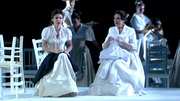































Your Opinions and Comments
Be the first to post a comment!